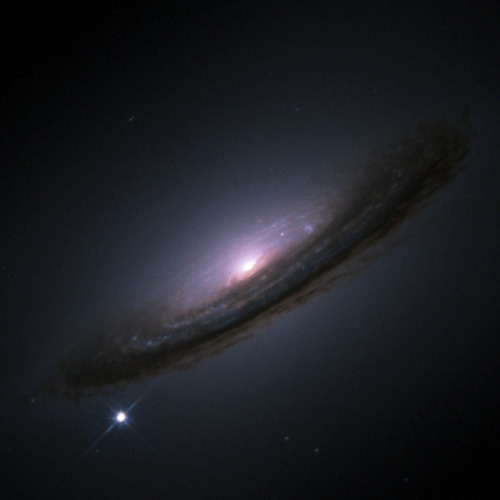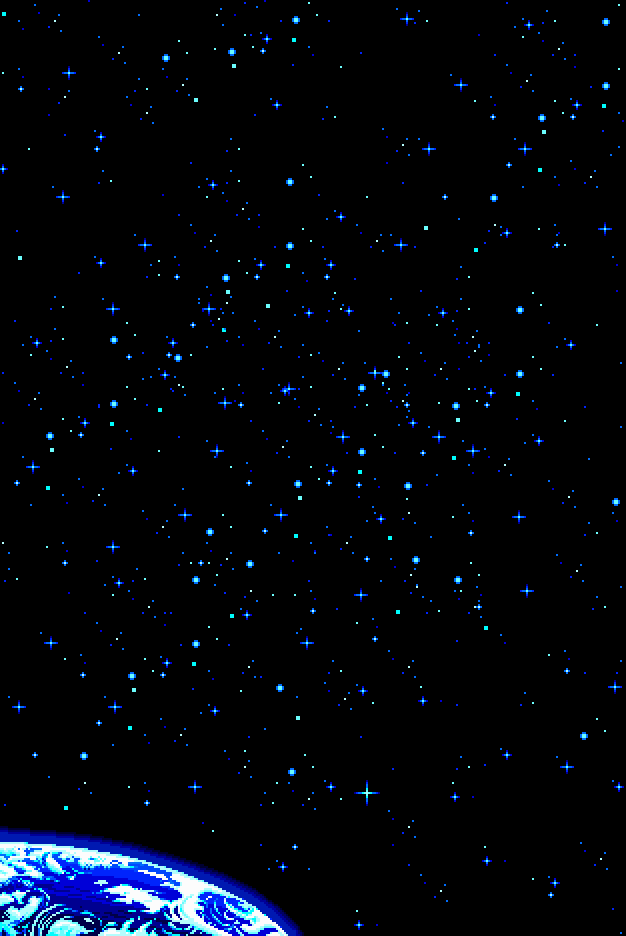Why Am I Sad
why am i sad
I don’t have any answer to this but I hope you feel better :’( But here is a great example of astronomy and how awesome humanity can be

More Posts from Intergalacticnerd and Others
The Shakespearean Moons of Uranus
This weekend marks the 400th anniversary of Shakespeare’s death, and we’re highlighting the moons of Uranus; some of which are named after characters from his works.

While most of the moons orbiting other planets take their names from Greek mythology, Uranus’ moons are unique in bing named for Shakespearean characters, along with a couple of them being named for characters from the works of Alexander Pope.

Using the Hubble Space Telescope and improved ground-based telescopes, astronomers have discovered a total of 27 known moons around Uranus.
Here’s a sampling of some of the unique aspects of the moons:
Miranda

Shakespearean work: The Tempest
Miranda, the innermost and smallest of the five major satellites, has a surface unlike any other moon that’s been seen. It has a giant fault canyon as much as 12 times as deep as the Grand Canyon, terraced layers and surfaces that appear very old, and others that look much younger.
Ariel

Shakespearean work: The Tempest
Ariel has the brightest and possibly the youngest surface among all the moons of Uranus. It has a few large craters and many small ones, indicating that fairly recent low-impact collisions wiped out the large craters that would have been left by much earlier, bigger strikes. Intersecting valleys pitted with craters scars its surface.
Oberon

Shakespearean work: A Midsummer Night’s Dream
Oberon, the outermost of the five major moons, is old, heavily cratered and shows little signs of internal activity. Unidentified dark material appears on the floors of many of its craters.
Cordelia and Ophelia

Shakespearean works: Cordelia - King Lear; Ophelia - Hamlet
Cordelia and Ophelia are shepherd moons that keep Uranus’ thin, outermost “epsilon” ring well defined.
Between them and miranda is a swarm of eight small satellites unlike any other system of planetary moons. This region is so crowded that astronomers don’t yet understand how the little moons have managed to avoid crashing into each other. They may be shepherds for the planet’s 10 narrow rings, and scientists think there must be still more moons, interior to any known, to confine the edges of the inner rings.
Want to learn more about all of Uranus’s moons? Visit: http://solarsystem.nasa.gov/planets/uranus/moons
Check out THIS blog from our Chief Scientist Ellen Stofan, where she reflects on the life and legacy of William Shakespeare on the 400th anniversary of his death on April 23, 1616.
Make sure to follow us on Tumblr for your regular dose of space: http://nasa.tumblr.com




Einstein’s gravitational waves found at last
One hundred years after Albert Einstein predicted the existence of gravitational waves, scientists have finally spotted these elusive ripples in space-time.
In a highly anticipated announcement, physicists with the Advanced Laser Interferometer Gravitational-Wave Observatory (LIGO) revealed on 11 February that their twin detectors have heard the gravitational ‘ringing’ produced by the collision of two black holes about 400 megaparsecs (1.3 billion light-years) from Earth.
“Ladies and gentlemen, we have detected gravitational waves,” David Reitze, the executive director of the LIGO Laboratory, said at a Washington DC press conference. “We did it!”
Continue reading via source: Nature
Infographic: Nik Spencer/Nature

The bright spot in the lower left is SN 1994D, a star in the midst of a supernova, in the galaxy NGC 4526. During this final performance, the star will briefly outshine its parent galaxy. No supernovae have been observed in our galaxy in over four hundred years.
js
John Nelson Creates Stunning Visuals of Earth ‘Breathing’

John Nelson, noted for creating remarkable visualizations depicting weather conditions of the planet, has come up with a pulsating GIF that shows the heartbeat of the Earth in a course of seasonal changes through NASA’s satellite photography. View his other amazing GIF below.
Keep reading
i think the coolest thing would be to see a new color





Highest point in Georgia



We’ve always defined ourselves by the ability to overcome the impossible. And we count these moments. These moments when we dare to aim higher, to break barriers, to reach for the stars, to make the unknown known. We count these moments as our proudest achievements. But we lost all that. Or perhaps we’ve just forgotten that we are still pioneers. And we’ve barely begun. And that our greatest accomplishments cannot be behind us, because our destiny lies above us. - Interstellar, 2014.
LIGO Gravitational Wave Chirp - Chirp pattern of gravitational waves detected by LIGO on September 14, 2015. Credit: LIGO http://www.ligo.org/
-
 sellenic liked this · 2 months ago
sellenic liked this · 2 months ago -
 ardentandco reblogged this · 7 months ago
ardentandco reblogged this · 7 months ago -
 ardentandco liked this · 7 months ago
ardentandco liked this · 7 months ago -
 metallic-mermaid reblogged this · 1 year ago
metallic-mermaid reblogged this · 1 year ago -
 e13ment4l liked this · 1 year ago
e13ment4l liked this · 1 year ago -
 hellcatsandcars liked this · 1 year ago
hellcatsandcars liked this · 1 year ago -
 ayumunoya liked this · 2 years ago
ayumunoya liked this · 2 years ago -
 lokvinashini liked this · 2 years ago
lokvinashini liked this · 2 years ago -
 anchoredhopes liked this · 2 years ago
anchoredhopes liked this · 2 years ago -
 dandelionlovesyou liked this · 2 years ago
dandelionlovesyou liked this · 2 years ago -
 christinerastic liked this · 2 years ago
christinerastic liked this · 2 years ago -
 mega-aulover reblogged this · 2 years ago
mega-aulover reblogged this · 2 years ago -
 mega-aulover liked this · 2 years ago
mega-aulover liked this · 2 years ago -
 themirage-prismatic liked this · 2 years ago
themirage-prismatic liked this · 2 years ago -
 talkativesnowdrop liked this · 3 years ago
talkativesnowdrop liked this · 3 years ago -
 dumboismad-blog liked this · 3 years ago
dumboismad-blog liked this · 3 years ago -
 songweaver reblogged this · 3 years ago
songweaver reblogged this · 3 years ago -
 sindysugar reblogged this · 3 years ago
sindysugar reblogged this · 3 years ago -
 federluftmask liked this · 3 years ago
federluftmask liked this · 3 years ago -
 klommitravin liked this · 3 years ago
klommitravin liked this · 3 years ago -
 hotdilf-420 reblogged this · 4 years ago
hotdilf-420 reblogged this · 4 years ago -
 justatheatrekidwholovesspace liked this · 4 years ago
justatheatrekidwholovesspace liked this · 4 years ago -
 d4rkz3r0w0lfy liked this · 4 years ago
d4rkz3r0w0lfy liked this · 4 years ago -
 caranthira reblogged this · 5 years ago
caranthira reblogged this · 5 years ago -
 best-friend-quads reblogged this · 5 years ago
best-friend-quads reblogged this · 5 years ago -
 lazyassfinals reblogged this · 5 years ago
lazyassfinals reblogged this · 5 years ago -
 lazyassfinals liked this · 5 years ago
lazyassfinals liked this · 5 years ago -
 roogranger liked this · 5 years ago
roogranger liked this · 5 years ago -
 teralyri liked this · 5 years ago
teralyri liked this · 5 years ago -
 fissionfair liked this · 5 years ago
fissionfair liked this · 5 years ago -
 finebootyjudy liked this · 5 years ago
finebootyjudy liked this · 5 years ago -
 honeyedvenom reblogged this · 5 years ago
honeyedvenom reblogged this · 5 years ago -
 lena-bot liked this · 5 years ago
lena-bot liked this · 5 years ago -
 earthin liked this · 5 years ago
earthin liked this · 5 years ago -
 puddlesa1 reblogged this · 5 years ago
puddlesa1 reblogged this · 5 years ago -
 awarmplace reblogged this · 5 years ago
awarmplace reblogged this · 5 years ago -
 empressintraining reblogged this · 5 years ago
empressintraining reblogged this · 5 years ago -
 catgirlautomaton liked this · 5 years ago
catgirlautomaton liked this · 5 years ago -
 daydream-defunct liked this · 5 years ago
daydream-defunct liked this · 5 years ago -
 brokenbydawn reblogged this · 5 years ago
brokenbydawn reblogged this · 5 years ago
"Astronomy compels the soul to look upwards and leads us from this world to another." - Plato
147 posts